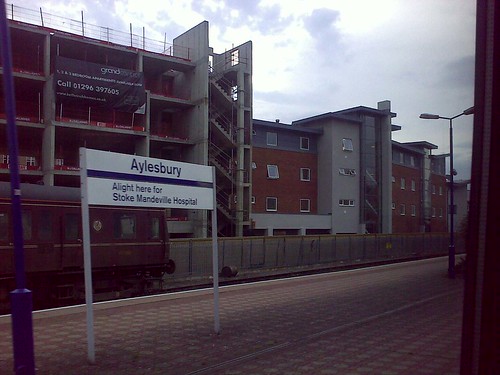Ironic to think of it now, but before the police were filmed beating the shit out of Ian Tomlinson and assorted members of the public, there was some sort of media push on against “citizen journalists”, the Internet, Google, etc, and in favour of Good Old Local Newspapers. Well, there must be some explanation for every Lloyds-rated columnist taking up the theme at once. Surely the producer of Wire doesn’t have quite that degree of journalistic influence?
That statement now seems to have become inoperative, as they say. I thought this article of Stephen Moss’s was one of the least objectionable and most contentful of the genre, even if he does seem to blame bloggers for “lost relatives” at one point.
A couple of points. To start with, it’s worth trying at least to distinguish individual phenomena from general ones. Essentially, the newspapers (mostly US ones) that have bitten the dust did so for one simple reason; too much leverage.
It’s arguable that we’ve lived through an era which can be most simply characterised as the Leverage Jihad; anything that could be levered-up with more debt was leveraged, and then quite frequently again, and sometimes again, to the greater profit of the owners of the sliver of actual equity capital involved and the greater risk of society in general, notably through the banks who were lending the vast amounts of Other People’s Money required. Leverage always has two effects; increased return on capital, and increased operational gearing. Any hit to cashflow can kill; any hit to valuation can wipe out the owners and leave the bank sitting on a huge paper loss as well. This is actually far less unique in financial history than I make it sound; J. K. Galbraith remarked that in every era some men discover leverage and decide that they possess financial genius.
So we shouldn’t assume there was something terribly wrong with newspapers, when in fact it may have been the model of ownership and mode of financing that is the problem, just as it was for property, banking, and retail. Note that literally every failure Moss discusses decided to save money by doing less reporting; they did this in order to help service the debts their owners took out to become levered-up newspaper tycoons. That in turn should suggest some options about how to fix shaky papers. It’s worth remembering that the current model of a newspaper grew up in a world where the expensive bit was production; now it’s turning into one where the assets walk out of the door.
Another one is that the spread of big city papers into places that weren’t usually served by them was a consequence of the property binge, and hence of the Leverage Jihad. Everywhere with a railway line that could, on the best possible day, with the most charitable assumptions, get you to London in 90 minutes developed a building or ten like this one near the station. Again, this is self-limiting.
 (If you think that’s grim, check out the details.)
(If you think that’s grim, check out the details.)
But what I would like to know is what, precisely, was achieved by shooting down the BBC’s plans for a major expansion of local news? A source who was familiar with it claims the newspapers’ lobby didn’t like it because it was so good. At the most, this seems to have delayed the crisis by a couple of months; with so many papers stretched to the bone by leverage and puffed up with temporary property-boom ad money, the crunch had to come sooner or later. So now, we face the prospect of neither newspapers, nor BBC Local.
I recently came across your blog and have been reading along. I thought I would leave my first comment. I don’t know what to say except that I have enjoyed reading. Nice blog. I will keep visiting this blog very often.
Sarah
http://blanket.ws